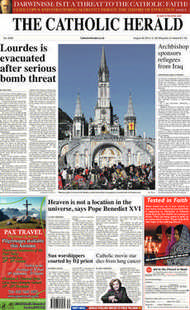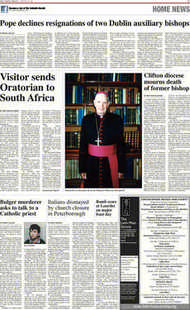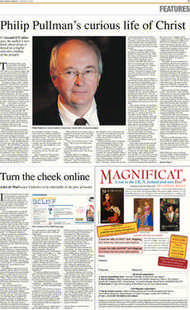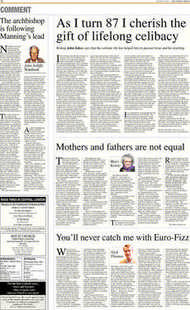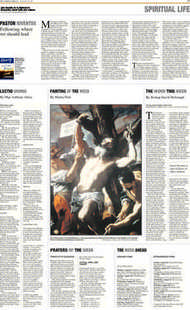Page 16, 20th August 2010
Page 16

Report an error
Noticed an error on this page?If you've noticed an error in this article please click here to report it.
Tags
Share
Related articles
Pullman’s New Book ‘not Fit For Children’, Says Author
Bishop Dismisses Pullman’s Book On Jesus
History Will Answer Philip Pullman
Philip Pullman’s Curious Life Of Christ
A Preachy Rant Against The Church
Professor offers a riposte to Philip Pullman
Earlier this year bestselling children’s author Philip Pullman’s latest thinly veiled attack on Christianity, The Good Man Jesus and the Scoundrel Christ, was published to coincide with Easter.
Pullman is one of the most prominent Church-bashing atheists in Britain, and his latest work is no less antiChristian than the His Dark Materials series of children’s book that made his name. The Good Man Jesus is a work of historical fiction based around the absurd premise that Jesus has a twin-brother called Christ, a devious, twisted character who betrays him and later fakes the Resurrection.
So in response to Pullman’s short novel comes this even shorter riposte by the eminent Jesuit theologian and author, Professor Emeritus of the Pontifical Gregorian University in Rome.
Fr O’Collins has taught more bishops than anyone on earth, and has probably forgotten more about Christianity than all the New Atheists combined have learned. For despite being one of the leading anti-Christian thinkers, Pullman is a biblical lightweight.
The novel starts with Mary being impregnated after an “angel” with the appearance of a young man tricks his way into her bedroom and tells her the Lord wanted her to conceive a child. “With a hint and wink, the story implies that one of the local boys seduced Mary,” as Fr Collins writes.
She gives birth to twins, Jesus, which as Fr O’Collins points out was a common name at the time, and “Christ”, the Greek for “the anointed one”, an absurd name for a time when anyone claiming to be such would likely be hunted down and killed by the authorities.
As Pullman once went through “a very Gnostic phase” in his 20s, the inspiration for this conceit may have been the third-century Acts of Thomas, which suggested that the Apostle Thomas was the twin of Jesus.
After abandoning this idea Pullman became an atheist and opponent of Christianity, so the purpose of this book is, naturally, to attack St Paul. Pullman has always presented him as some sort of sinister genius who ignored Jesus’s humanity, and yet, as Fr O’Collins points out, there is striking evidence that this is not true.
In fact, Pullman’s attacks on Christianity might carry more weight if he didn’t make so many basic mistakes. He claims the gospels all come from one source and yet biblical schools of all hues have always agreed that the four gospels came from a number of sources.
Sometimes Pullman shows himself to be simply ignorant of the Gospels – as when he writes that Jesus was killed by the Roman spear or that Thomas laid his finger inside Jesus’s wounds.
As Fr O’Collins points out, historical fiction is fiction, but it must be based around reality. There is a long history of historical fiction based around Christ, but Pullman’s seems the most ludicrous.
So why bother refuting it? Because, as Fr O’Collins rightly points out, lowbrow fiction like Pullman’s has far more influence on the public debate than intelligent studies, and gets regurgitated into the secular culture.
It is a battle Christians are increasingly losing, which is why we’re so indebted to Fr O’Collins for providing such sturdy and authorative ammunition.
Ed West
blog comments powered by Disqus


